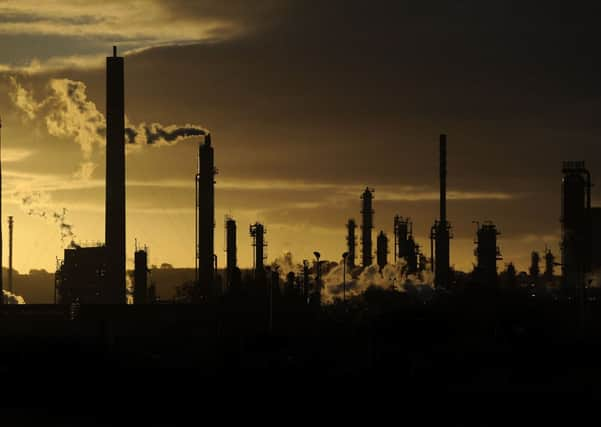Comment: MSPs shy of fracking despite Ineos alarm


When it comes to warnings on Scottish job prospects and future energy supplies there can have been fewer starker than the one issued at The Scotsman’s conference on fracking this week.
The chief executive of Ineos Upstream, Gary Haywood, said that the future of the Grangemouth petrochemical complex was at risk if Scotland turns its back on fracking. Losing the complex would be catastrophic for Scotland’s economy.
Advertisement
Hide AdAdvertisement
Hide AdInevitably the loss of the petrochemical complex at Grangemouth would raise questions over the future of the entire Ineos industrial site, including the oil refinery which plays such a crucial role in powering Scotland.
Ineos operations at Grangemouth employ around 1,400 people. Beyond that around 10,000 others gain work indirectly from the site. It supplies 70 per cent of the fuel piped into Scotland’s filling stations and the refinery processes 200,000 barrels of crude oil every day.
FOLLOW US
SCOTSMAN TABLET AND MOBILE APPS
When faced with such statistics it is not difficult to see why anything that casts doubt over the future of Grangemouth has to be taken very seriously indeed. One only has to cast one’s mind back to the tail end of 2013 when Grangemouth was thrust into the forefront of politicians’ minds, especially that of Alex Salmond, the then First Minister. The importance of Grangemouth to Scotland was thrown into sharp relief when an industrial dispute saw Jim Ratcliffe, the billionaire Swiss-based majority owner of Ineos, threaten to shut the petrochemicals site – a move that would have caused hundreds of redundancies and jeopardised the future of the adjoining refinery. Salmond and the UK government intervened to resolve the dispute. That similar noises should now be coming from Haywood ought to be of deep concern to politicians. Haywood’s concerns centre on the £150 million facility Ineos is developing to import cheap gas from the US fracking boom to replace declining North Sea supplies. Ineos expects that an expansion of US plants would make it uneconomic to ship across the Atlantic within ten to 12 years. Hence, Haywood’s argument that Ineos would need a domestic supply of shale oil in the near future. Needless to say, Haywood’s view is not shared by a huge number of voters in the Forth Valley, who are far from enamoured by the prospect of fracking in their back yards.
With the Scottish Government announcing a moratorium on fracking and Scottish Labour as good as calling for a ban, those politicans are reluctant to tackle this issue head on. Despite their determination to park it until after the General Election, this is one that’s not going away.